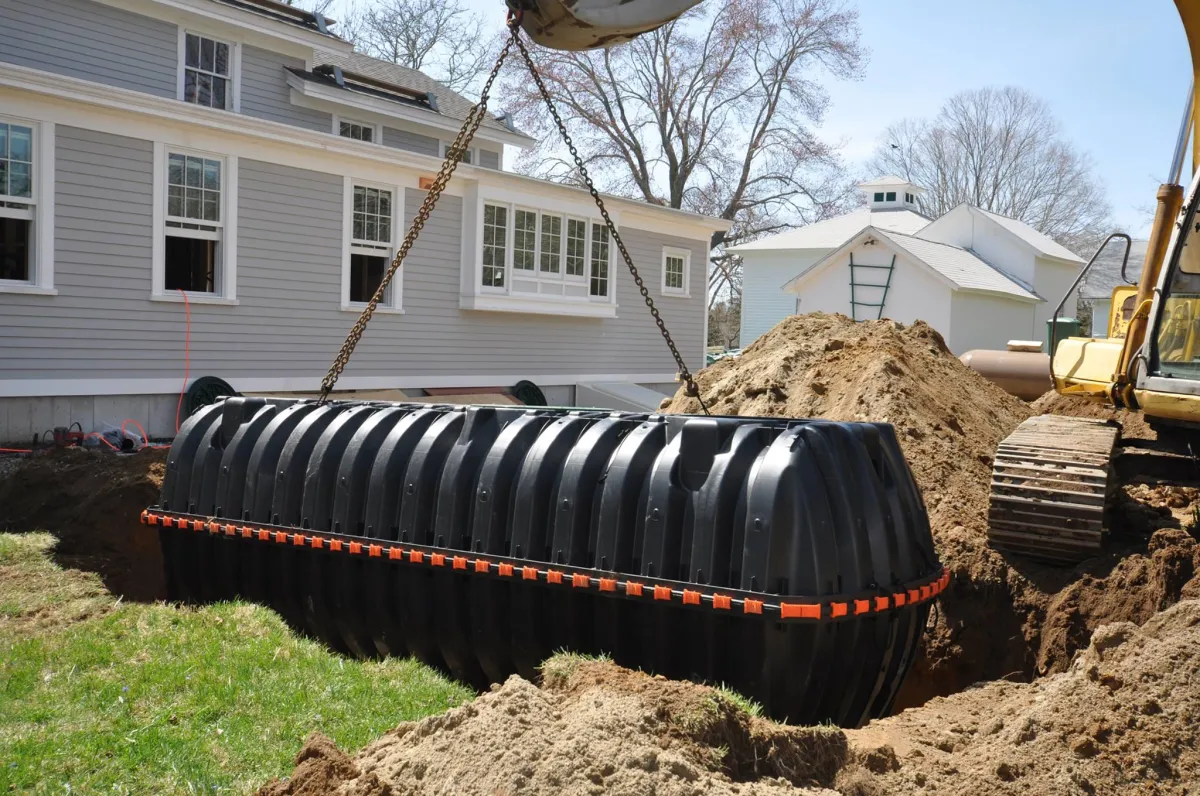Licensed, Bonded & Insured | Family Owned & Operated
049-012803 IL | IL Pumping License: 054-021753 | IA Pumping License: 12839
22 YRS. EXPERIENCE, FULL SITE PREP EXPERTS - HOW CAN WE HELP?

Navigating Septic System Regulations: A Comprehensive Guide for Illinois Residents
Introduction
Installing a septic system is a significant undertaking that involves careful planning, adherence to regulations, and a thorough understanding of local guidelines. For Illinois residents considering a septic installation, navigating the state's regulations is crucial to ensure a successful and compliant project. This comprehensive guide will delve into the intricacies of septic system regulations in Illinois, covering permit applications, zoning restrictions, soil testing, setback requirements, and other essential considerations.

Permit Applications: The First Step
Before embarking on a septic system installation journey, Illinois homeowners must navigate the process of obtaining the necessary permits. Permit applications serve as a crucial checkpoint to ensure that proposed installations adhere to local environmental and health standards. The Illinois Department of Public Health (IDPH) oversees septic system regulations and provides guidelines for obtaining permits.
Applicants must submit detailed plans of the proposed septic system layout, including information about the tank, drainfield, and any other relevant components. The IDPH reviews these plans to ensure they meet state requirements and pose no potential threats to public health or the environment. It's essential to consult the IDPH guidelines and engage with local health departments to ensure a smooth permitting process.
Zoning Restrictions: Know Your Property's Zoning
Zoning regulations play a pivotal role in determining where and how a septic system can be installed on a property. Zoning restrictions vary across Illinois counties and municipalities, so homeowners must be well-versed in their local zoning codes. These regulations dictate setbacks, property line distances, and even the size of the septic system based on the property's zoning classification.
For instance, properties in densely populated urban areas may have stricter zoning restrictions than those in rural regions. Some areas might require larger setback distances to prevent contamination, while others might have limitations on the type of septic system technology allowed. Therefore, homeowners must familiarize themselves with their property's zoning classification and work within its confines to design a compliant septic system.
Soil Testing: Ensuring Proper Absorption
One of the most critical aspects of septic system installation in Illinois is conducting thorough soil testing. Soil conditions significantly impact the efficiency and longevity of a septic system, making it essential to evaluate the soil's ability to absorb and treat wastewater. Soil testing helps determine the percolation rate, which measures how quickly water moves through the soil.
The IDPH requires soil testing to assess the suitability of the chosen septic system design for the property's soil type. A professional soil tester collects soil samples from the proposed drainfield area and analyzes their composition. Based on the percolation rate, soil texture, and other factors, the tester can recommend an appropriate septic system design that ensures effective wastewater treatment.
Setback Requirements: Maintaining Safe Distances
To prevent potential health hazards and environmental contamination, setback requirements dictate the minimum distances between septic system components and specific features on a property. These features may include water sources, property lines, wells, bodies of water, and buildings. Adhering to setback requirements is crucial to avoid cross-contamination and to maintain the overall integrity of the septic system.
Illinois setback requirements are established to minimize the risk of wastewater contaminating drinking water sources and natural ecosystems. Homeowners must consult local regulations to determine the precise setback distances applicable to their property and septic system design. Complying with setback requirements ensures a safer and more sustainable septic installation.
Other Considerations: Maintenance and Ongoing Compliance
Once a septic system is installed and operational, the journey is not over. Proper maintenance and ongoing compliance with regulations are essential to ensure the longevity and functionality of the system. Regular septic tank pumping, periodic inspections, and responsible water usage are crucial components of effective septic system management.
Additionally, homeowners should stay informed about any updates or changes to septic system regulations in Illinois. Environmental and health guidelines may evolve over time, and remaining knowledgeable about these changes will help homeowners maintain a compliant and efficient septic system.
Conclusion
Navigating septic system regulations in Illinois requires careful attention to detail, a thorough understanding of local guidelines, and collaboration with relevant authorities. Obtaining the necessary permits, adhering to zoning restrictions, conducting soil testing, and complying with setback requirements are essential steps for a successful septic installation. By following these regulations and considering ongoing maintenance, Illinois residents can ensure their septic systems operate effectively while safeguarding public health and the environment.

Excavation Marketing Pros
Excavation Marketing Pros is dedicated to the success of excavation and septic companies.

AVOID COSTLY MISTAKES:
Do NOT hire an excavating contractor without first reading our free guide:
The ULTIMATE Excavation & Septic "Success Guide."

We Offer Excavation Services NearYou!
If you don't see your specific area, contact us and we may still be able to help or give a referral.
Serving cities & towns nearby:
All rights reserved | Privacy policy


